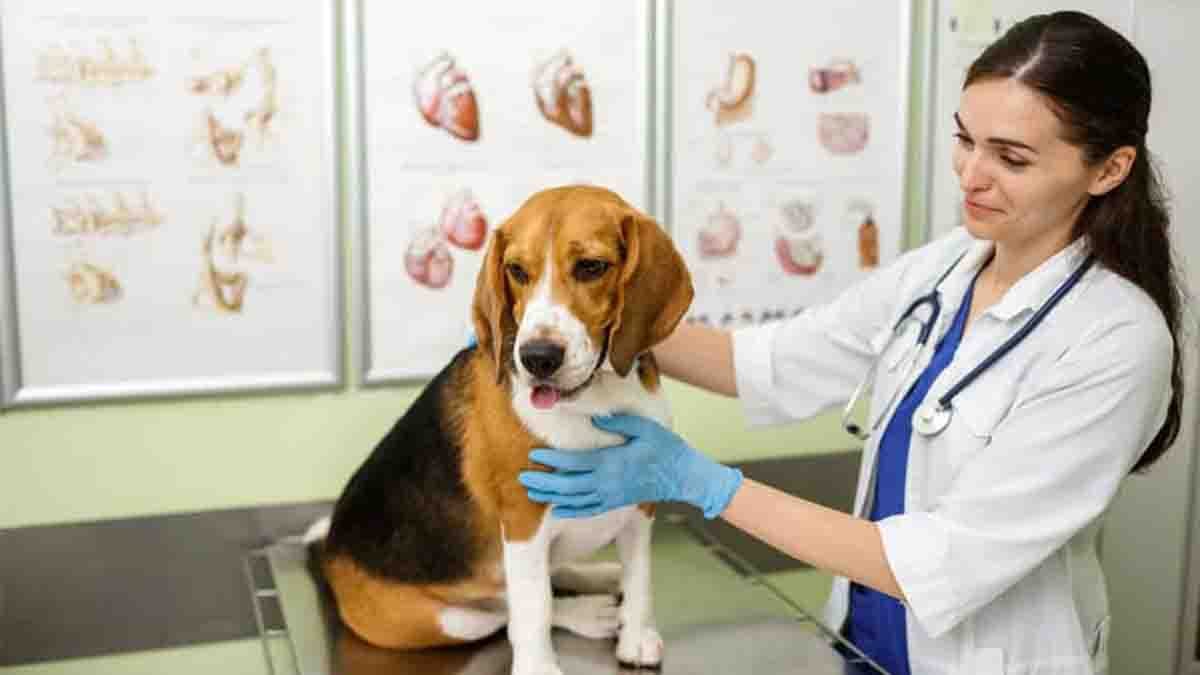Texas is home to two of the United States’ best veterinary colleges. These schools are known for providing students with top-class medical education.
As a result, students who want to pursue a career in veterinary medicine are advised to attend any of the veterinary schools in Texas. However, you must be well-informed even before you make your choice.
Thus, to provide you with basic knowledge about veterinary schools in Texas, this article will discuss the schools in detail and shed some light on the length of time it takes to complete a veterinary medical degree in Texas, as well as some helpful hints for excelling in veterinary schools in the Lone Star State.
Is veterinary medicine a good career path?
It’s true, of course. If your career goals include providing clinical and surgical care for animals as well as counseling their owners, you should seriously consider pursuing a Bachelor’s or Master’s degree in Veterinary Medicine.
Being a veterinarian is just as fulfilling as being a doctor because you get to ease the pain of animals who have been injured or are suffering from chronic illnesses, and you get to see the joy and gratitude of their owners as well.
You’ll be their hero and make a difference in their lives.
There will be difficult times, such as when you have to put an animal down because it is terminally ill, but every profession has its challenges, and you will learn to deal with them as you go through your career.
Veterinary courses, on the other hand, are extremely competitive, and you’ll need to put in a lot of effort in school to get in.
Maintaining a high GPA is essential to your advancement. It’s also critical to begin working with animals as soon as possible, typically in high school.
Read more:
- Top Veterinary school in Florida (FAQs, Success tips)
- 5 Easiest Vet Schools to Get Into (FAQs, Tips)
Prerequisites for veterinarian schools in Texas:
To study veterinary in Texas, a student must meet the following requirements;
- GRE (Graduate Record Examinations) test score
- Official transcripts
- Letters of reference
- Prior technical knowledge
How long does it take to complete a veterinary school in Texas?
Veterinary medicine is a worthwhile aim, but it will take time to achieve.
To become a licensed veterinarian and wear the white coat, one must be willing to spend four years in an undergraduate program and another four years in veterinary school.
This makes it a total of eight years to complete veterinary school in Texas.
Best Veterinary Schools in Texas:
You must attend a veterinary school to become a veterinarian.
To get started on that route, the best veterinary colleges in the United States can help, and these are some of the greatest veterinary colleges in Texas;
1. College of Veterinary Medicine and Biomedical Sciences, Texas A&M University:
Texas A&M University in College Station, Texas, has a college called the Texas A&M College of Veterinary Medicine and Biomedical Sciences.
It’s no surprise that the Texas A&M University College of Veterinary Medicine & Biomedical Sciences routinely ranks among the nation’s best veterinary colleges.
Veterinarians who graduate from this institution have some of the best credentials in the country.
The College of Veterinary Medicine & Biomedical Sciences has developed a rigorous curriculum to produce the greatest veterinarians in Texas and the rest of the country.
The famous Veterinary Medical Teaching Hospital integrates veterinary students into the primary care team regardless of whether they work in an internship or a residency program.
Over 400 veterinarians and personnel work at the facility, which sees over 24,000 patients each year.
2. Texas Tech University School of Veterinary Medicine:
There are numerous learning methods and community-based learning opportunities for students in the Texas Tech University School of Veterinary Medicine’s DVM program.
This school offers an outcome and competency-based, integrated, core-elective program.
To graduate with the confidence and competence to practice veterinary medicine, students will receive a very practical curriculum that strongly emphasizes primary veterinary care.
Attending this school will expose you to a wide variety of practical knowledge and skills that are valuable for an excellent veterinary medicine career.
Tips for excelling in Veterinary Schools:
As a veterinary student, you’ll have to deal with much stress. However, you must be prepared to overcome several obstacles to enjoy the best life possible.
While stress can be managed by taking regular breaks, the following recommendations will help you get through veterinary school more smoothly.
Spend time with animals:
One of the first things you’ll do in your first year of school as a vet student is practice animal handling. It’s a good idea to get accustomed to working with animals in advance.
Before you go to veterinary school, ensure you get to experience animals and build your confidence by volunteering at a local animal shelter or spending the day on a farm or veterinary clinic.
Join Professional Organizations:
There is no need to wait until the end of your studies to joining professional groups. You may be able to join a student chapter at your university.
Large resources are made available by a variety of organizations. Connecting with others going through a similar experience makes it easier to realize that you are not alone in your struggles.
Join Clubs:
Clubs for specific interests are common in several vet schools. Ensure that you become a part of it. Joining a club is an excellent way to broaden your knowledge and gain practical experience.
And learned skills are better retained when you put them to work right away.
Moreover, joining a club at any of the veterinary schools in Texas is important because it will help you keep your veterinary enthusiasm burning brightly.
Read Ahead:
If feasible, before attending a lecture, study up on the subject matter. Reading ahead of time will help you familiarize yourself with the content you are expected to learn.
Most lecturers expect students to know what they are about to teach in class. However, read ahead to better equip yourself to ask questions about stuff that’s still a little hazy.
Attend Class:
Even though it seems clear, you may be inclined to skip some lessons. However, if you manage to get away with this in college, avoid it in college.
This is because there is a vast amount of material to study in veterinary school. What you learn in class will help you better understand what you’ll be tested on in the future.
Relax:
You must find time for yourself amid the commotion of veterinary school. Set aside a few minutes each week to disconnect from technology and refresh.
Some things that might help you relax include spending time with loved ones, practicing meditation, or watching a movie.
In a nutshell, no matter how broad the coursework may be, find time to cool off your brain.
Have Fun:
You’ll never have the opportunity to relive the special bonds formed in veterinary school. Therefore, take a break and enjoy the journey.
Look forward to establishing bonds that will last a lifetime with the people you meet and ensure that you laugh your way through the entire education process.
Exercise:
Stress reduction is much easier with regular physical activity. Your brain will thank you for the improved blood flow.
Also, having a good attitude towards life will help you remember things better and keep you from getting depressed. Thus, engage in regular exercise.
Frequently Asked Questions on Veterinary Schools in Texas:
University of California–Davis.
Cornell University.
Colorado State University.
North Carolina State University.
Ohio State University.
Texas A&M University–College Station.
Veterinarians are medical professionals who treat animals. Doctors use their abilities to diagnose and treat a wide range of ailments.
Veterinarians rarely become affluent, despite the vast range of wages. A veterinarian is needed to care for animals as long as there are any. Veterinary medicine offers a wide range of emotional and intellectual benefits.
Veterinary school is more difficult than most undergraduate programs. Veterinarians typically enroll in 25-30 credits per semester of grueling academics. There are 35 to 40 hours of classroom or laboratory work per week, and students will need to study for additional several hours each week.
Conclusion:
Texas is home to two of the greatest veterinary colleges in the country. These colleges, however, require that you satisfy the admissions standards outlined in this article.
Moreover, if you want to excel in veterinary medicine, you must also have a deep love for animals and an open mind. You should also desire to learn and be open to professional development.
Awesome one; I hope this article answered your question.
Editor’s Recommendations:
- 10 Best Communications Schools in California (FAQs)
- How to Unblock Websites on School Chromebook (FAQs)
- 5 Best Architectural Engineering Colleges in the United States (FAQs)
- Top 5 Best Medical Schools in Ohio (FAQs)
- 7+ Best Business Schools in California (FAQs)
If you find this article good, please share it with a friend.




